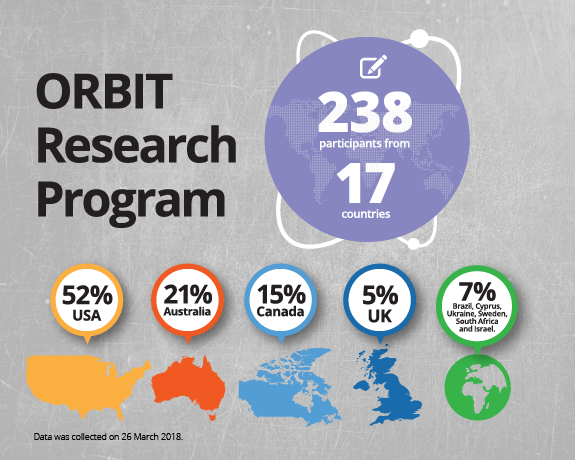Hundreds sign up to trial online bipolar resources

In Summary
- More than 200 people trial Swinburne created online bipolar self-help resources
- ORBIT targets those who have experienced numerous episodes of illness
- Opened to participants in September 2017
More than 200 people around the world have signed up to trial online bipolar self-help resources created at Swinburne.
The research program, named ORBIT, opened to participants in September 2017. Since then, 90 participants have completed the online five-week interventions and 129 participants have begun the program.
Professor Greg Murray, psychology research leader from Swinburne and Chief Investigator for ORBIT, says the study is one of the largest of its kind and targets those who have experienced numerous episodes of illness.
“Research has shown that many people with late-stage bipolar don’t respond as well to common therapies used in treatment,” he says.
“The ultimate aim of ORBIT is to help people cope with their bipolar disorder.”
ORBIT Project Manager Fiona Foley says, “so far we’ve seen a very high participant retention rate both during the 5-week intervention and follow-up research period, which is a great indicator that participants are valuing the experience.”

Positive feedback
Ms Foley says that the feedback from participants in the program has been positive.
“Users have found the website design user-friendly and simple to navigate,” she says.
“Our participants have enjoyed working with their online coaches, and found the interactive discussion forums helpful as they worked through the material. Participants felt that they learned new skills and that their involvement in the study helped others in the bipolar community.”
Just over half the participants have been based in the USA, with Australian users the second largest cohort making up 28 per cent of the numbers.
Drilling into the details
ORBIT compares two, five-week, online interventions designed to improve quality of life for people who experience bipolar disorder.
The interventions have been created by an international team of researchers, clinicians and consumers and include videos, exercises, tools, forums and access to an online coach.
The programs have been designed as brief self-help programs, to be completed online, while participants continue with their usual mental health treatment plans.
The ORBIT project was developed by Swinburne University of Technology in close collaboration with participants as well as Crest.BD, University of British Columbia, Lancaster University, University of California, Australian National University, Deakin University, Western Sydney University and University of Melbourne.
ORBIT received more than $1 million in funding from the National Health and Medical Research Council in November 2015.
People between the ages of 18 - 65 who have a diagnosis of bipolar disorder are invited to participate in the project and can sign up at the ORBIT website

